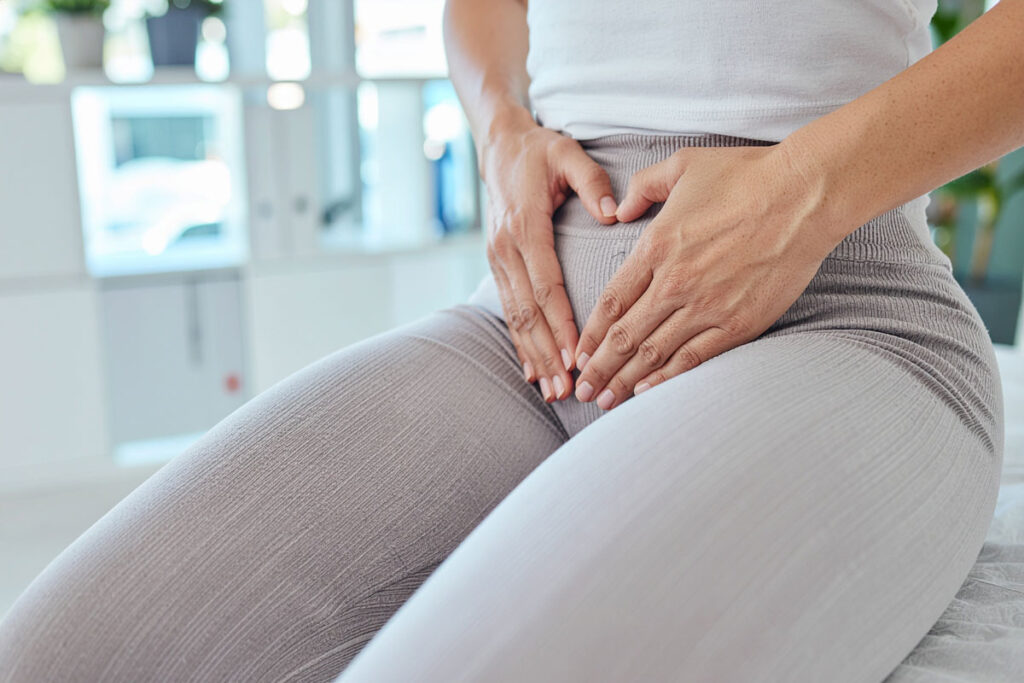Pelvic Vein Treatment in Tampa, FL
Find the cause. Feel believed.
Advanced diagnosis and minimally invasive treatment for pelvic vein conditions and chronic pelvic pain.
Learn More About Pelvic Veins
Nearly one-third of women will experience chronic pelvic pain at some point in their lives. Unfortunately, many are told the pain is “psychological” or unexplained—leaving them without answers or relief.
In some cases, chronic pelvic pain is caused by hard-to-detect pelvic varicose veins, a condition known as Pelvic Congestion Syndrome (PCS). These abnormal veins can create ongoing pain and pressure that often goes undiagnosed for years.
What Is Pelvic Congestion Syndrome (PCS)?
Pelvic Congestion Syndrome occurs when veins in the pelvis—often the ovarian or pelvic veins—fail to return blood properly to the heart. Just like varicose veins in the legs, faulty vein valves allow blood to flow backward and pool, causing veins to enlarge and become painful.
In the pelvis, these varicose veins can affect the uterus, ovaries, vulva, and surrounding structures. While approximately 15% of women of childbearing age have pelvic varicose veins, not all experience symptoms—making diagnosis even more challenging.


Why PCS Is Often Missed
Pelvic varicose veins cannot be seen during a routine physical exam or standard pelvic exam. Because of this, PCS is frequently overlooked by providers who are not trained to evaluate pelvic vein disorders.
Many women spend years searching for answers, undergoing repeated tests, or being told nothing is wrong—while their pain continues to worsen. Without an accurate diagnosis, effective treatment is delayed despite the availability of proven solutions.
Symptoms Linked to Pelvic Vein Disease
Pelvic vein disorders may cause symptoms that:
- Worsen throughout the day
- Increase with prolonged standing or sitting
- Feel like deep, aching pelvic pain or pressure
Some women may also experience varicose veins in areas such as the groin, labia, vulva, or buttocks. In some cases, pelvic varicose veins occur alongside leg varicose veins—while in others, pelvic veins are involved without classic leg symptoms.
Pelvic Vein Treatment Options
If pelvic vein disease is suspected, specialized imaging can identify abnormal veins that standard exams miss. Many patients are candidates for a simple outpatient procedure called embolization, which closes abnormal pelvic veins and relieves symptoms.
This minimally invasive treatment is:
- Performed without surgery
- Typically fast and well tolerated
- Designed to eliminate the source of pain—not just manage symptoms

Why Choose Vein911® for Pelvic Vein Treatment
Vein911® Vein Treatment Centers specialize in diagnosing and treating complex vein conditions that originate above the legs, including pelvic, groin, vulvar, and buttock varicose veins.
Our pelvic vein specialists are experienced in identifying PCS and treating painful pelvic varicose veins using safe, precise, and minimally invasive techniques. Patients trust Vein911® because we listen carefully, investigate thoroughly, and offer real solutions.
Get Help for Pelvic Vein Pain in Tampa, FL
If you’re experiencing chronic pelvic pain—especially pain that worsens throughout the day or with standing—you deserve answers and effective care.
Call (813) 544-8715 today to schedule your personalized consultation at Vein911® Vein Treatment Centers.
